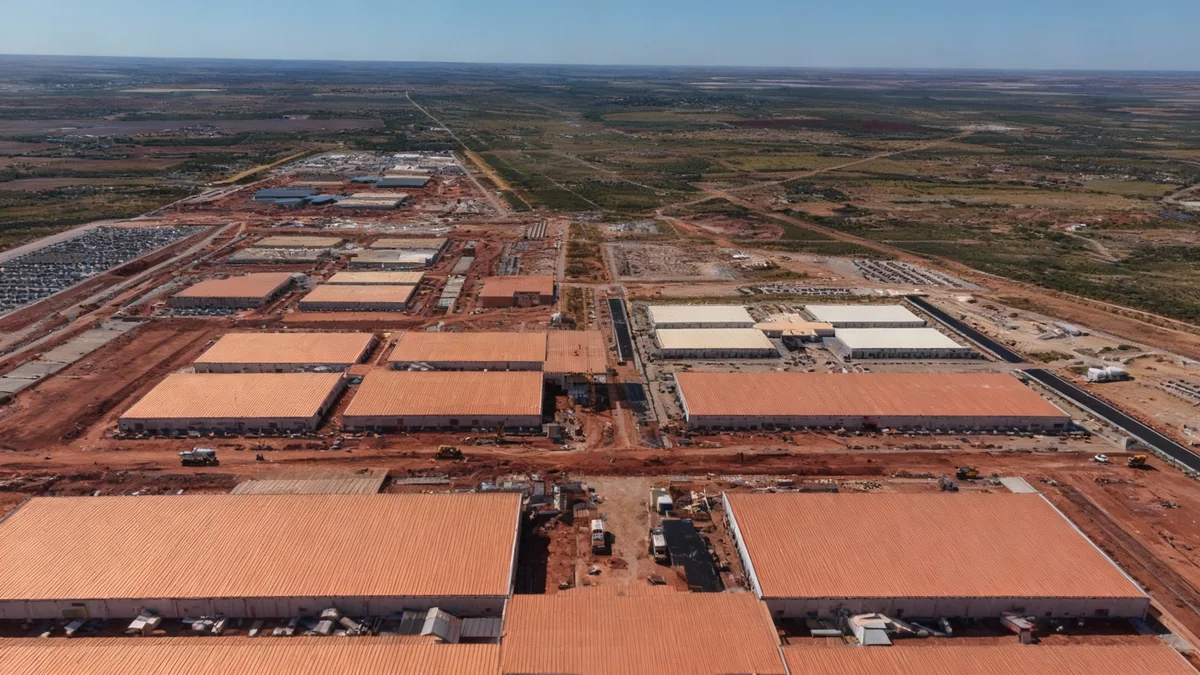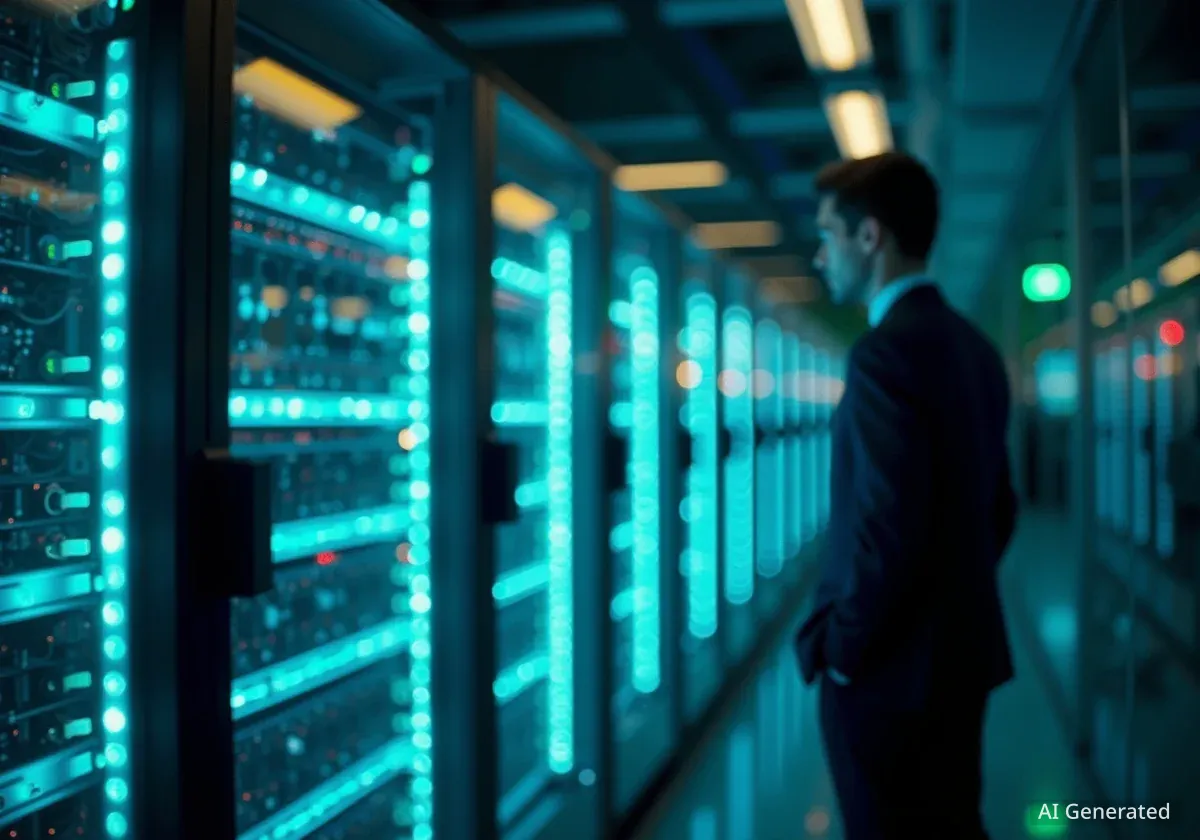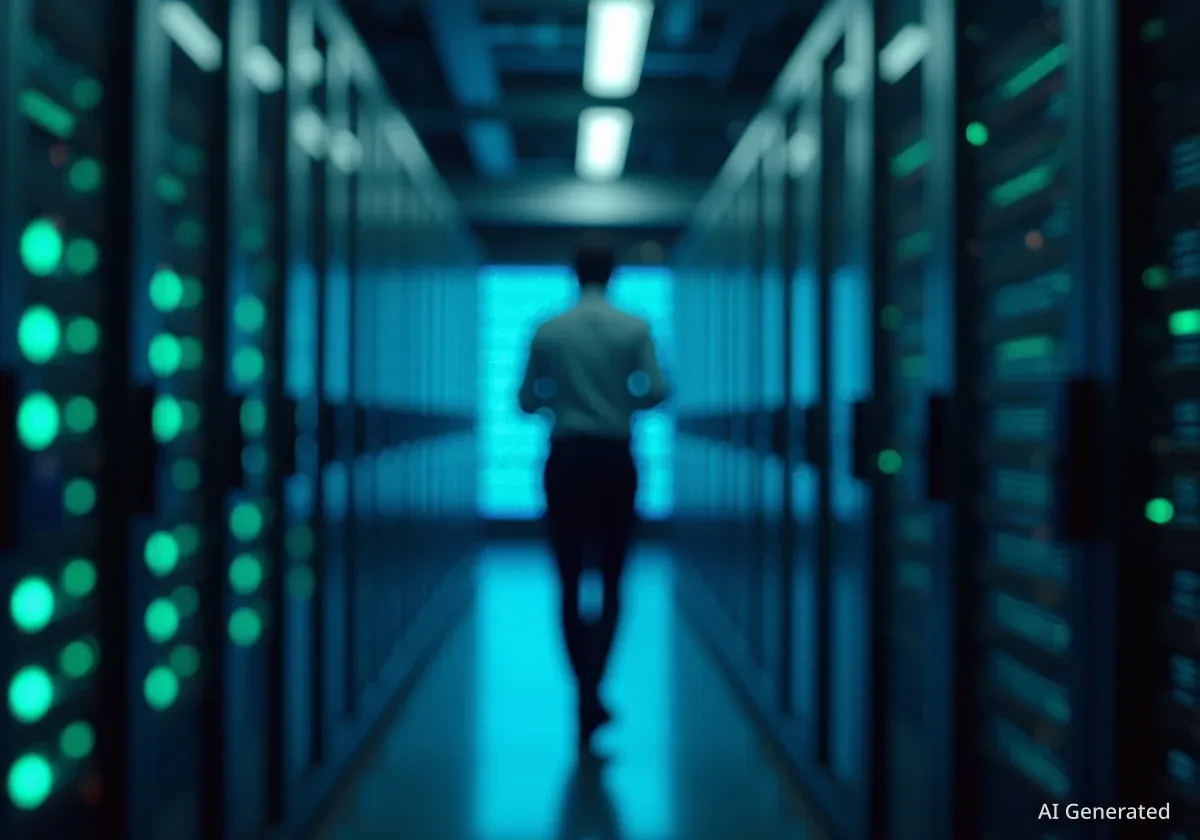Data center startup Crusoe has successfully raised $1.4 billion in a new funding round, pushing its valuation to over $10 billion. This significant capital injection highlights the intense investor interest in the infrastructure required to power the rapidly expanding artificial intelligence industry.
The company, which is building a major data center campus for OpenAI, has now raised approximately $3.9 billion since its inception in 2018. The latest oversubscribed equity round was led by Mubadala Capital and Valor Equity Partners, signaling strong confidence in the growing market for AI computing power.
Key Takeaways
- Crusoe raised $1.4 billion in new equity, increasing its valuation to over $10 billion.
- The company is a key player in building AI infrastructure, including a 1.2 gigawatt campus for OpenAI in Texas.
- The funding reflects a broader investment boom in data centers, driven by unprecedented demand for AI computing.
- Concerns are rising over power grid strain and potential market speculation as capital floods the sector.
Unprecedented Demand for AI Infrastructure
The rush to build and deploy advanced artificial intelligence models has created a voracious appetite for specialized computing infrastructure. This demand is fueling record-breaking investments and valuations across the tech sector, with data centers becoming a critical component of economic growth.
Chase Lochmiller, Crusoe's chief executive, described the current market conditions as unique in his experience. He noted that the demand for computing resources is accelerating at a pace he has never witnessed before.
"We are seeing tremendous and accelerating demand for compute infrastructure, unlike anything I’ve ever witnessed in my career," Lochmiller stated.
While OpenAI's large-scale projects are highly public, Lochmiller emphasized that this trend is not isolated. "We are seeing it across the ecosystem," he added, indicating a widespread industry push for more powerful and expansive data processing capabilities.
Market Projections
According to financial services firm UBS, annual spending by tech companies on artificial intelligence is forecast to exceed $500 billion by 2026. This massive expenditure underscores the scale of the infrastructure build-out currently underway.
Major Projects and the Power Challenge
Crusoe is at the forefront of this build-out with several large-scale projects. The company is developing a sprawling 1.2 gigawatt campus for OpenAI in Abilene, Texas. This facility, estimated to cost around $12 billion, is scheduled for completion by mid-2026.
In addition, Crusoe is constructing a 1.8 gigawatt campus in Wyoming for an undisclosed technology client, with ambitious plans to eventually expand its capacity to 10 gigawatts.
This rapid expansion, however, presents a significant challenge: securing enough electricity. The immense energy consumption of modern data centers is straining power grids across the United States, creating bottlenecks for new construction.
The Scarcity of Power
Lochmiller acknowledged the severity of the energy constraint. "Power is very scarce right now," he said, expressing skepticism about the feasibility of all announced projects in the sector. "There have been a lot of commitments made in the space where I can’t vouch for the reality they will happen."
To put the scale into perspective, Crusoe's current development pipeline amounts to 45 gigawatts of capacity. Lochmiller explained this is equivalent to the power consumed by "about eight to 10 New York Cities."
From Flared Gas to AI Cloud
Crusoe was originally founded as Crusoe Energy with a unique mission: to capture energy from natural gas flaring at oil fields and use it to power data centers for mining bitcoin. The company has since pivoted its focus to providing high-demand infrastructure for the AI industry, positioning itself as a key "neocloud" provider.
A Flood of Capital and Market Concerns
The enormous capital required for these projects is reshaping financial markets. Traditionally, large tech companies funded infrastructure from their own balance sheets. Now, the scale of investment is attracting unprecedented levels of private capital and debt financing.
Morgan Stanley estimates that $1.5 trillion in financing from private capital and debt markets will be needed over the next five years to fulfill the commitments made for building AI data centers.
This influx of cash has led some analysts to draw comparisons to the dotcom bubble of the early 2000s, warning of inflated valuations and speculative investments. Recent major transactions in the sector include:
- A $40 billion deal by an investor consortium including BlackRock to acquire Aligned Data Centers.
- A joint venture between Blue Owl Capital and Meta to develop a massive data center in Louisiana, part of a $27 billion debt deal.
- The initial public offering of CoreWeave, a Crusoe rival, which has achieved a market value of over $65 billion.
Crusoe itself has engaged in significant debt financing. The company, along with its construction partner Blue Owl Capital, raised $10 billion in debt from JPMorgan to help fund the Abilene project. This debt is secured against the facility and its 15-year lease with Oracle, which will provide the computing power to OpenAI.
Despite the market concerns, Lochmiller expressed confidence in the financial stability of the major players involved. "The amount of capital that will be required to stand up the infrastructure of intelligence is immense," he said. "We feel good about the participants taking on these debts as they range from the best private companies to governments to leading start-ups generating billions of dollars of revenue."





